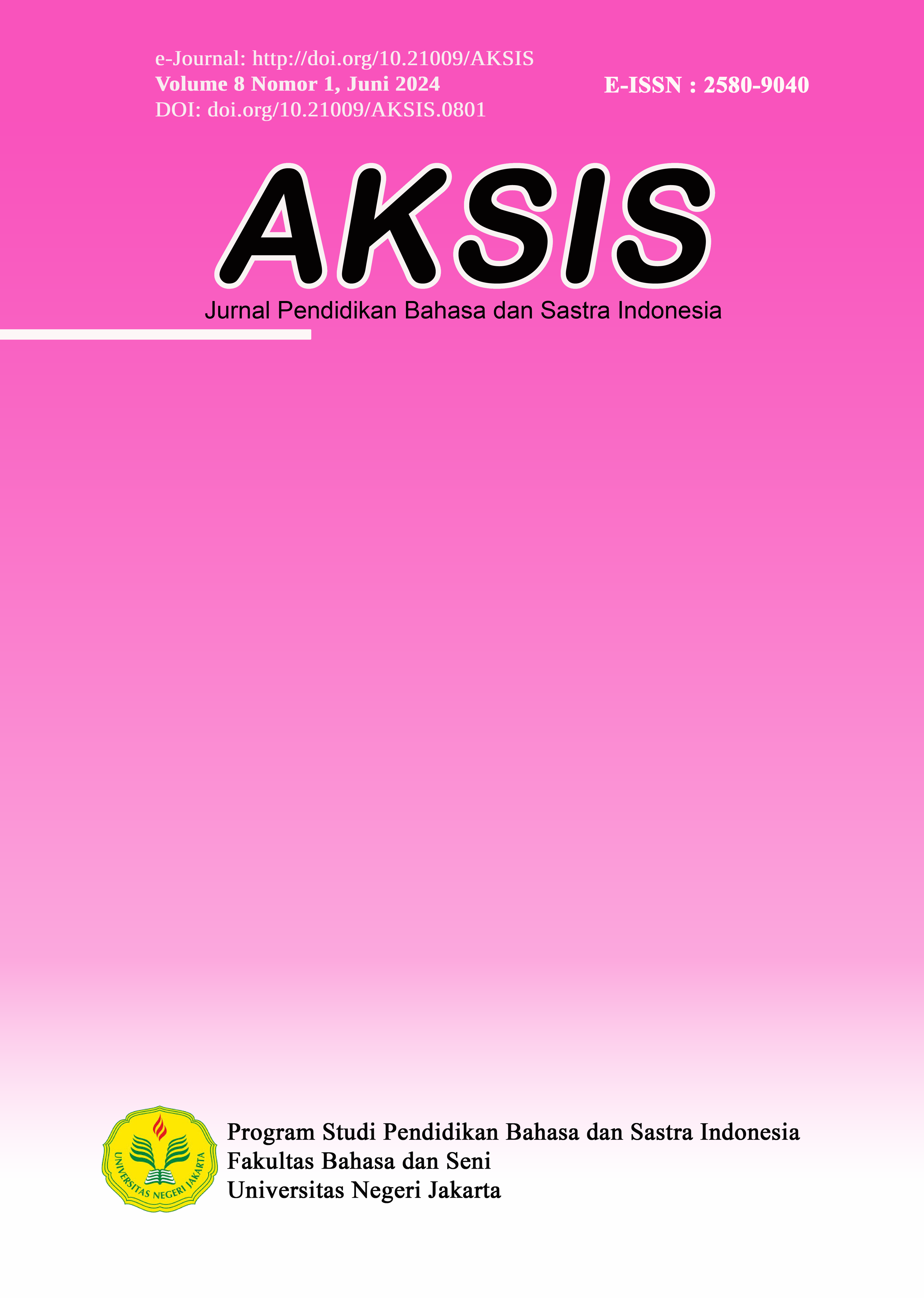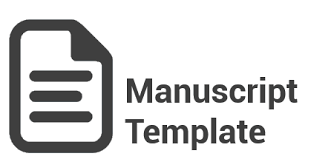Directive Acts of Speech in Kajian Malam Ahad Kanal Dr. Zaidul Akbar and its Relation to Teaching Materials for Persuasive Texts in Class VIII Junior High Schools
DOI:
https://doi.org/10.21009/AKSIS.080103Keywords:
directive speech acts, persuasion texts, teaching materialsAbstract
The study contains information on compliance with directives relating to healthy lifestyles and is combined with the Islamic language. The purpose of this study is to investigate the evening study of Dr. Zaidul akbar which includes: 1) the existence of directive compliance; 2) the function of the directive; 3) the linkage of directives compliance with the teaching material of persuasion texts in the eighth grade of upper secondary school. This research implements qualitative descriptive research with information gathering methods. The technique is performed by the sadap engineering while the advanced technique is the SBLC and the record engineering. The method of data analysis is a pragmatic matching strategy. The results of the research showed that there was a number of compliance with directives of orders (53), compliance of directives requests (16), compliance directives calls (15), complying directives counseling (30), comply directives criticism (18), compliant directives prohibition as much (16). The function of obedience to directives is found in the channel of Dr. Zaidul Akbar. 21 functions are found. There are instructions to obey directives that contain commands (23) data, instructs (15) data, requires (8) data, wishes (4) data, and commands (2) data. The presence of directives requests has 4 functions consisting of asking (6) data, offering (3) data, hoping (5) data and applying (2) data. Command has 3 functions that consist of calling (9) data, pushing (4) data and directing (2) Data. Commander has four functions, i.e. advising (6) Data, suggesting (4) Data, reminding (14) Data, and advocating (6) Data. Critic has 2 functions which are denying (11) data and curbing (7) data. Prohibition has three functions composed of (6) preventing data, prohibiting (5) and avoiding (5) data. The results of this research can be an alternative to teaching materials.
References
Budiman, S. A. (2016). Tindak Tutur Ilokusi Direktif dalam Komik Insekt Karya Sascha Hommer. Identitaet, 5(3).
Ibrahim, A. (n.d.). Syukur. 1993. kajian tindak tutur. Surabaya: usaha Nasional.
Kurniawan, R., & Novita, Y. (2020). Tindak Tutur Persuasif Pedagang Kaki Lima di Pasar Kaget Gelora Haji Agus Salim Padang. Jurnal Muara Pendidikan, 5(1), 510–520.
Maharani, N. (2022). Tindak Ilokusi pada Dialog Tokoh Film Keluarga Cemara dan Implikasinya terhadap Pembelajaran Bahasa Indonesia di SMA.
Mahsun, M. (2017). Metode Penelitian Bahasa. Tahapan, Strategi, Metode, dan Tekniknya. Rajawali Press.
Moleong, L. J. (2019). Metodologi penelitian kualitatif. PT Remaja Rosdakarya Bandung.
Novitasari, D., Yohanes, B., & Suhartono, S. (2019). Tuturan Persuasif Dalam Video Blog Kecantikan: Kajian Pragmastilistika. Kembara: Jurnal Keilmuan Bahasa, Sastra, Dan Pengajarannya, 5(2), 168–181.
Oktaviani, R., & Marliana, N. L. (2021). Pengembangan Model Pembelajaran Project Based Learning pada Mata Kuliah Penyuntingan Bahasa Indonesia Berbasis Teknologi Informasi dan Komunikasi.
Pande, N. K. N. N., & Artana, N. (2020). Kajian pragmatik mengenai tindak tutur bahasa indonesia dalam unggahan media sosial instagram@ halostiki. ALFABETA: Jurnal Bahasa, Sastra, Dan Pembelajarannya, 3(1), 32–38.
Prayitno, H. J. (2017). Studi sosiopragmatik. Muhammadiyah University Press.
Rahmawati, A. (2020). Analisis tindak tutur bahasa indonesia dalam unggahan media sosial instagram@ sastgascovid19. Id (kajian pragmatik). Seminar Internasional Riksa Bahasa, 74–79.
Searle, J. R. (1969). Speech acts: An essay in the philosophy of language (Vol. 626). Cambridge university press.
Sudaryanto, M., & Bahasa, A. T. A. (2015). Pengantar Penelitian Wahana Kebudayaan Secara Linguistis. Yogyakarta: Sanata Dharma University Press.
Sugiyono, D. (2013). Metode penelitian pendidikan pendekatan kuantitatif, kualitatif dan R&D.
Wijana, I. D. P. (1996). Dasar-dasar pragmatik. Andi Offset.
Yule, G. (2014). Pragmatik (Terjemahan Rombe Mustajab). Yogyakarta: Pustaka Pelajar.






